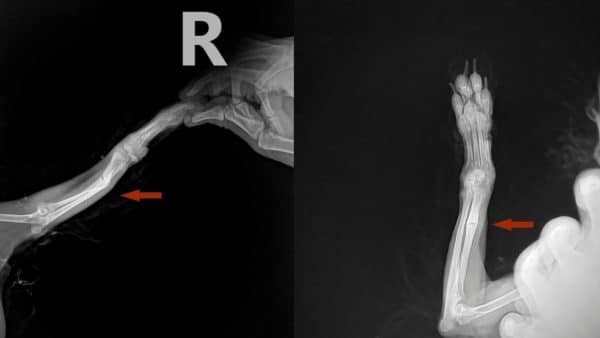

Throughout their life, your dog can develop a number of common health issues. Some of them are preventable through vaccines (such as rabies and kennel cough) by following an immunization schedule.
Others are due to predisposing factors, such as the area where you live (like diseases transmitted by ticks), your pet’s age, and even your pet’s gender.
Sometimes, it’s as random as zoomies. The technical term for zoomies is Frenetic Random Activity Periods (FRAPs). Zoomies are completely normal behavior. They occur because your dog has a lot of energy, and they need a way to release it. Your dog will sprint and run in circles because they are very excited and energetic.
Preventing disease in dogs is possible, but you should talk to your vet about the most important things you should do to make sure that your pooch has the lowest likelihood of becoming sick.
Prioritizing your dog’s immune health is essential for a happy and active life. Discover the best products crafted to enhance your canine companion’s immunity. These top-rated supplements are enriched with essential vitamins, antioxidants, and probiotics, known for their immune-boosting properties.

Even though broken bones can be a common illness for every dog if they have been involved in a traumatic event such as an accident, they seem to be more common in older dogs and those that have mineral deficiencies.
Is your pet safe?
1 in 3 pets will need emergency veterinary treatment each year and it is estimated a pet receives emergency care every 2.5 seconds in the U.S.
The average cost of treating a broken bone in dogs is $2,700. Cancer treatments? Up to $10,000.
It’s why so many pet owners say their biggest regret isn’t the vet bill—it’s not having pet insurance when they needed it most.
Ask yourself: “If an unexpected $5,000 vet bill hit tomorrow, could I afford it?”
If the answer is no, it’s time to get covered.
Take a look at Lemonade. They have a great app that actually works, they have an instant chatbot that is faster and, dare we say it, friendlier than most companies’ “real” customer service and a quick scroll through Reddit will uncover… people are really vibing with this brand.
So go check them out and take a look. It takes less than a minute.
If your pooch is a relatively healthy pup or adult dog, the good thing is that recovery from a bone fracture isn’t exactly difficult. It does have to be diagnosed and treated properly so that the dog doesn’t lose limb functionality.
There are some cases when dogs might have a limb amputated, depending on the severity of the sustained trauma.
Your pet can get worms from being in contact with other infected animals, but the eggs can also be transmitted indirectly, such as by sharing the same food and water bowls.
The symptoms of worms can differ depending on the parasite species. Roundworms usually produce a large and round belly, but pretty much all intestinal worms cause digestive illnesses, including diarrhea, weight loss, and energy loss.
Heartworm infections are much more severe and such an infestation can easily be confused with heart disease or a respiratory issue such as pneumonia.
Dogs that have heartworms can cough a lot and get tired more quickly than normal. Preventing intestinal worms and heartworms can be done by giving your dog dewormers on a regular basis.

Fleas and ticks are by far the most common external parasites that dogs can get. Talk to your vet about what you should do to prevent parasite infestations.
Sometimes, it can be as simple as applying a topical solution to your dog’s back once every month or two months. A flea and tick collar can prove its worth, too.
While these external parasites are a nuisance and can cause itchiness and discomfort, the truth is that they can transmit other common health problems.
For example, ticks can be vectors for diseases such as Rocky Mountain Spotted Fever or Lyme disease while fleas can be the vectors of certain intestinal parasites.
Dogs can also develop dermatitis due to the constant scratching and an allergen that flea saliva contains, which can lead to hair loss and other skin problems.

As its name suggests, kennel cough involves your dog’s respiratory system. Your pet can have difficulty breathing after contracting the infection from another animal.
One note we must make about kennel cough is that it is far more common in dogs that live in large canine communities.
Although easier to treat compared to other common dog health problems, kennel cough can be prevented by asking your vet to give your dog a vaccine against it. Some pet owners choose to skip the vaccine as their dogs might not frequently come in close contact with other dogs.
Ear infections are another common health problem for dogs. There are many things that can irritate or get stuck in your dog’s ear, from grass seed to dirt and dust. However, your dog may also develop otitis as a result of being exposed to a parasite.
Left untreated, ear infections can affect the middle and inner ear, potentially affecting your dog’s hearing on the whole. If your pet has an ear infection, you can notice pawing at their ears or general inflammation of the area.
You can also suspect your dog of having this health problem if you see that they avoid having their ears touched.
Dogs may develop arthritis as they become older. Pets that get regular exercise are less predisposed to developing a musculoskeletal health problem, so make sure that your dog gets enough outdoor exposure and playtime is very important.
Any old dog may develop arthritis sooner or later. It is not a curable condition and the classic symptoms that pet owners might notice are a reluctance to climb stairs, jump on the couch, or engage in strenuous exercise.
Reduce the stress on your dog’s spine with a dog ramp if you are at home or a car ramp if you are traveling. While these ramps can be expensive, vet bills will be much more expensive when your dog suffers back issues.
Arthritis can be managed long-term with NSAIDs and a variety of hip and joint chews. Your dog might also benefit from warm baths, local compresses, and CBD oil supplements keeping in mind that all of these need to be recommended by your veterinarian.
Medications including Gabapentin, Trazadone, Amoxicillin, Glucosamine, and Meloxicam all need to be prescribed by a vet and monitored closely when administering them to your four-legged buddy.

Cancer has become a relatively common health issue of dogs in the past several years, but the reason for this is not just the fact that pets are more exposed to carcinogenic substances.
In fact, dogs have a much longer lifespan these days, and since senior pets are more likely to develop various types of cancer, it has also become more common.
Canine cancer can’t really be prevented. However, depending on the type that a dog develops, it can be treated more or less successfully.
Skin cancer and bone cancer are some of the most difficult forms to treat. Your veterinarian can recommend a variety of therapies from surgery to chemotherapy and radiation treatment. Some cancers canines get include Lymphoma and Mast Cell Tumors.
Cataracts can be a common health complication of older dogs in particular. It can be caused by other factors though, such as severe eye diseases or it can occur as a result of trauma.
Eye health problems can sometimes be transmitted genetically, so some puppies can be born with cataracts or they can develop it throughout their first weeks of life.

Does your dog have bad breath? If they do, something might be wrong with their diet, but they might also show symptoms of a tooth infection or gum disease.
Periodontal disease is very hard, if not impossible to treat and it usually leads to such complications that your dog’s teeth might have to be completely removed.
To prevent dental illnesses, we recommend brushing your dog’s teeth every day or at least once every two to three days. You can also use water additives that are marketed as a doggy mouthwash.
Keeping your dog’s dental health up to par can prevent serious health issues such as heart disease.
We grouped these two together as they are closely linked to one another. Metabolic diseases such as diabetes are far more common in dogs that are overweight or obese, and unfortunately, canine obesity now affects more than half of all dogs across the world.
Type I Diabetes in dogs can be less common compared to its type II counterpart, which can be improved with the right diet. Talk to your veterinarian about what you are supposed to feed your dog so as to help them lose weight.
Canine obesity can lead to other health complications such as heart disease and orthopedic problems such as arthritis. Diabetes is usually linked to other health issues such as liver and kidney failure, blood clotting problems, and a variety of other symptoms that can affect your dog’s quality of life.
It’s important to maintain a healthy diet for your dogs. Even adding veggies and fruits such as broccoli, tomatoes, pineapple or even watermelon will benefit your four-legged buddies in many ways!
Although it seems a much rarer dog health issue these days, the truth is that if you don’t give your pooch the right supplements and food that is healthy and nutritious in their early months of life, rickets can still affect your pet.
Calcium and phosphorus deficiency, as well as a lack of vitamin D, can cause rickets. Some of the symptoms of this health complication are bowed limbs, a stiff gait, bone pain, and frequent fractures (as the dog’s musculoskeletal system can’t cope with any light aggression).

While this might not be a disease of all dogs, the truth is that it has become more and more common over the years. It also tends to affect certain breeds such as the German Shepherd and the Golden Retriever as they are now genetically predisposed to hip and elbow dysplasia.
Even though surgery might be able to correct the issue, the problem is that the operation can be very expensive. If you do not have insurance, you might go into debt to have your canine friend treated — some procedures can cost more than $5,000. Also, dysplasia isn’t the easiest disease to treat, and recovery can take a while.
From yeast infections or impetigo to folliculitis, ringworm, and mange, there are a lot of skin issues that any dog breed can develop.
A dog’s skin can also become infected if they are groomed or bathed too often. For this reason, vets now recommend bathing your dog once a month or even once every two months.
The typical signs of skin health problems are listed below:
Acral lick dermatitis can be another disease that dogs can develop. In this case, the dog’s paws become infected from constant licking due to discomfort and itchiness.
Skin problems and allergies can sometimes be challenging to treat especially since they can involve several types of infection on the same patient.
Your dog might have started with a yeast infection, but it can get complicated with a bacterial infection and generally affect your dog’s health status to the point that they start losing weight, are in pain, and can’t even bear to be touched.
Dogs can be sensitive to a number of factors in their living space, such as dust particles, but also outdoor ones, such as pollen.
Allergens can also exist in their food, in which case dogs can exhibit a number of different symptoms, such as gastrointestinal distress.
Fortunately, these days allergy testing is much more common than it used to be, so consult your veterinarian to find out how you should go about things.
Also in terms of allergic reactions, dogs can suffer from anaphylactic shock caused by medications or insect bites, although these are quite rare throughout a dog’s life.
Even though these two are merely symptoms and not diseases in their own right, they are quite common health issues of all dogs.
Any pet can experience indigestion after eating bad food, after consuming too much of it at once, or after being exposed to a bacterium or virus that can produce a gastrointestinal infection.
Besides vomiting and diarrhea, a dog might also experience loss of appetite and subsequent weight loss.
The biggest risk that these two clinical signs pose to a dog’s health is that they produce severe dehydration. For instance, dogs with Parvo or Distemper, two diseases that have these symptoms, can lose their life in as little as two to three days if they don’t receive any treatment.
Some health conditions will cause vomiting and diarrhea including symptoms of pancreatitis in dogs, and Giardia infections Both of these health ailments will cause a dog to vomit, suffer diarrhea, weight loss, and inappetence.

There are a lot of foods, insecticides, cleaning substances, and other products that can cause serious poisoning in our canine friends.
Some of the most common foods that can be lethal to dogs are chocolate, sugarless gums and candies (as they contain large amounts of xylitol), and grapes or raisins. Even onion and garlic are dangerous and can cause severe symptoms in any dog.
Another type of toxic product that can be deadly to dogs is rodenticides (rat killers). Depending on the type of ingredients they contain, rodenticides can cause severe blood issues such as internal bleeding, but also kidney failure.
Antifreeze is another common toxic substance that a dog can get exposed to, and the worst thing about it is that it can be sweet, so your dog might want to drink a lot of it. When ingested, antifreeze causes severe kidney failure and can kill a dog within hours.
Autoimmune disease affects a number of dogs and while it might be less common compared to other illnesses, it can be encountered in a significant number of dogs. The most common disorders that affect dogs are the following:
Some dogs might experience weight loss, anemia, lethargy, and weakness, while others might be in pain in their joints or muscles. Joint lameness is also common, and so is an increased heart rate, blood clotting issues, and difficult breathing.
Your veterinarian can recommend the right type of therapy, but the truth is that autoimmune disease can be quite challenging to treat. However, a clean diet mostly composed of unprocessed foods and alternative treatments such as hydrotherapy can make a difference.
Canine Distemper is a disease that can affect any dog, regardless of age or breed. Your veterinarian will advise you to get your dog vaccinated against it as it is a quite dramatic illness that can affect your dog’s respiratory and digestive system, but also their nervous system.
To date, there is no cure for this viral infection, so we do not have a better piece of advice for you than to get your dog vaccinated against it.
Like Distemper, Parvo affects all dogs regardless of breed and age, but puppies tend to experience the most severe symptoms. It can take anything between three and ten days for puppies to show any signs.
Vaccinations are the best way of preventing Parvo in dogs. This disease is often unforgiving and its symptoms are very severe, such as the following:
When it comes to common health problems of unvaccinated dogs, leptospirosis is another that’s worth noting. It causes a variety of clinical signs from vomiting and fever to conjunctivitis, shivering, jaundice, and kidney disease.
The worst thing about dogs that become infected is that they can transmit it to their pet parents. It is a zoonosis, so humans can get it, too. Some dogs can be completely asymptomatic while others can have serious health complications.

Heatstroke can be defined as hyperthermia, meaning an event where a dog’s body becomes too hot to the point that it puts its life and health in danger.
There are two situations where a dog’s body can be too hot — when they engage in too much exercise and when they are left in a hot environment, such as the inside of a closed car.
Heatstroke is an emergency so if you see any of the following signs in your dog, you should contact your vet right away.
Since it is hard to tell whether your dog is showing a serious symptom or not, you should contact your vet whenever you feel like your pet’s life is in danger.
If your dog sustained trauma or shows any of the clinical signs we have mentioned above, veterinary assistance might be required right away.
As a general rule, any dog needs to be taken to the vet hospital at least once or twice a year for a regular check-up.
Blood tests and a physical examination can reveal diseases and infections for which treatment might be much more effective if they are diagnosed early.
If your dog experiences vomiting, diarrhea, loss of appetite, weight loss, or significant behavioral changes such as lethargy, weakness, or staggering, call your vet immediately.
From kidney disease and urinary tract infections to cancer, a senior dog is much more likely to experience more severe clinical signs mostly because they might have chronic health problems that make their immune response less effective. Here are some of the most common health issues of senior dogs.
Of all of the joint health issues that geriatric patients can develop, osteoarthritis is by far the most common one. Dogs can experience pain and partial loss of functionality in one or more of their limbs as they have less lubrication in their joints, especially in their hips, legs, and shoulders.
Certain supplements and the right food can make a difference or at least make your dog more comfortable, so talk to your vet about how you can help your dog.
Your dog can experience vision and hearing loss as they grow older, just like people do. Older dogs are also more likely to develop cataracts, which can lead to partial or complete blindness.
Hearing loss is common as your dog grows older and older and unfortunately, there is no way of preventing it other than by making sure that your pet doesn’t get an ear infection.
Heart problems can be more common in dogs that do not get enough exercise and that also suffer from obesity. Some of the symptoms you might notice in a pet that has heart disease are the following:
Keep in mind that heart disease can be fatal, so taking your dog for regular checkups to the vet hospital, especially after the age of 5 or 6, and making sure you never miss a dose of their medication are two pieces of advice that we have for you.
Not all lumps and bumps you might find on your dog’s body have to be cancer, but it is true that senior dogs are more likely to develop tumors.
Any lump has to be checked by your vet and general illness signs such as vomiting, diarrhea, lethargy, and general malaise should convince you to get medical assistance for your pet.
Any pet can suffer from cognitive dysfunction when they become a senior. The two typical signs of dementia in dogs, at least, are confusion and disorientation.
Some dogs fail to recognize their owners after a while and can be fearful and hide after the furniture all day. Unfortunately, there is no cure for canine cognitive dysfunction as of yet, but some types of drug therapies can be effective in delaying its progression.

As we have previously noted, pet obesity has become a bigger problem across the world, especially in the past several decades.
However, obesity is more likely to affect dogs over the age of 6 as they become more sedentary due to joint issues and they also begin to require a decreased caloric intake.
Excess weight puts pressure on a dog’s joint, which means that they become even more prone to suffering from arthritis or just less mobility at one point. Since osteoarthritis is a serious and more importantly, irreversible condition, we advise you to try to keep your pooch’s weight within normal limits.
Urinary infections are more common in any geriatric pet as they have a less effective immune system. That also means that their bodies are less capable of handling minor infections without the need for treatment with antibiotics.
Female dogs can suffer from cystitis while males dogs can get pyelonephritis. It’s a type of infection that can affect their bladder, but also their urethra and kidneys.
There are many health conditions that can affect your four-legged buddy. The best way to prevent some of these health issues or slow the onset is to make it a priority to have regular vet checkups. Remember, even if your pup seems healthy and happy on the outside, they could be suffering from a health issue.
Most of us train our dogs when they are puppies to jump up on furniture. We think it’s harmless (and easier than always lifting them), but for dogs, couches and beds are very high compared to the size of their bodies.
Every time they jump it compresses their back and applies enormous force to their joints.
It’s no wonder that an incredible 80% of dogs experience arthritis or joint pain by only 7 years old.
Luckily, there is a vet-recommended solution.
It’s the PawRamp by Alpha Paw. An adjustable ramp that allows dogs to safely get on and off couches and beds. PawRamp makes joining you in bed or on the couch effortless and fun.
As a bonus, you can use code SAVE35 to get $35 off the PawRamp today.

The medical, nutritional, or behavioral advice we provide is intended for informational and educational purposes only. Our editorial content is not a substitute for formal or personalized medical advice from a veterinary professional. Only board-certified veterinary specialists who have examined your pet should diagnose medical conditions, provide personalized treatment, or prescribe appropriate medication. For questions regarding your pet’s health, or if your pet is exhibiting signs of illness, injury, or distress, contact your veterinarian immediately. Never disregard professional medical advice or delay in seeking it because of something you have read on our site.